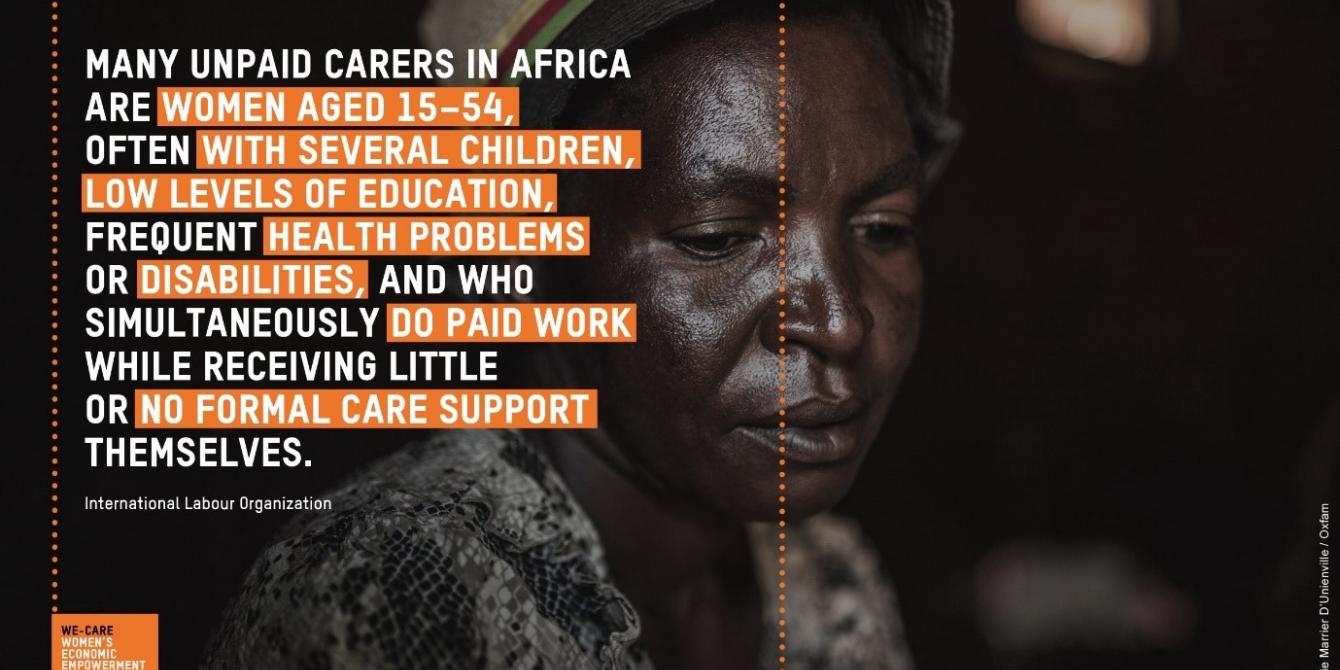
Care Burden on Africa's Women and Girls was Always Tough, but COVID -19 has made It Tougher
Before corona, I used to have constant work. I probably only missed a day in the week. Now, families are afraid to let us into their homes. They think that you will bring them corona. Life has become hard. Work is not guaranteed. With children in the house, food does not last. Most times, I am the one who supports the family. My husband is a casual labourer. He works at a construction site, so his income is not steady.
Sophia (*Name has been changed.), 40. Domestic worker — Nairobi, Kenya
The COVID-19 pandemic is threatening the global development narrative of ‘leaving no one behind.’ This particularly, for the more than 420 million Africans who live below the global poverty line, many of whom are women and girls.This pandemic has laid bare what has for too long been invisible: the heavy weight of unpaid care and domestic work (UCDW) that women and girls provide to keep our households and societies functioning. Across Africa, the imposed lockdowns have halted the operations of already fragile care services forcing women and girls to embrace additional responsibilities beyond their daily routines to support their families.
As we navigate through this crisis, we owe it to every woman and girl, to reflect and address UCDW as a pillar for the sustainable development of the African continent.


 Follow us on Facebook
Follow us on Facebook Follow us on Twitter
Follow us on Twitter YouTube
YouTube